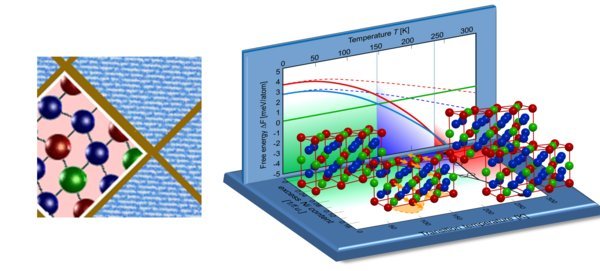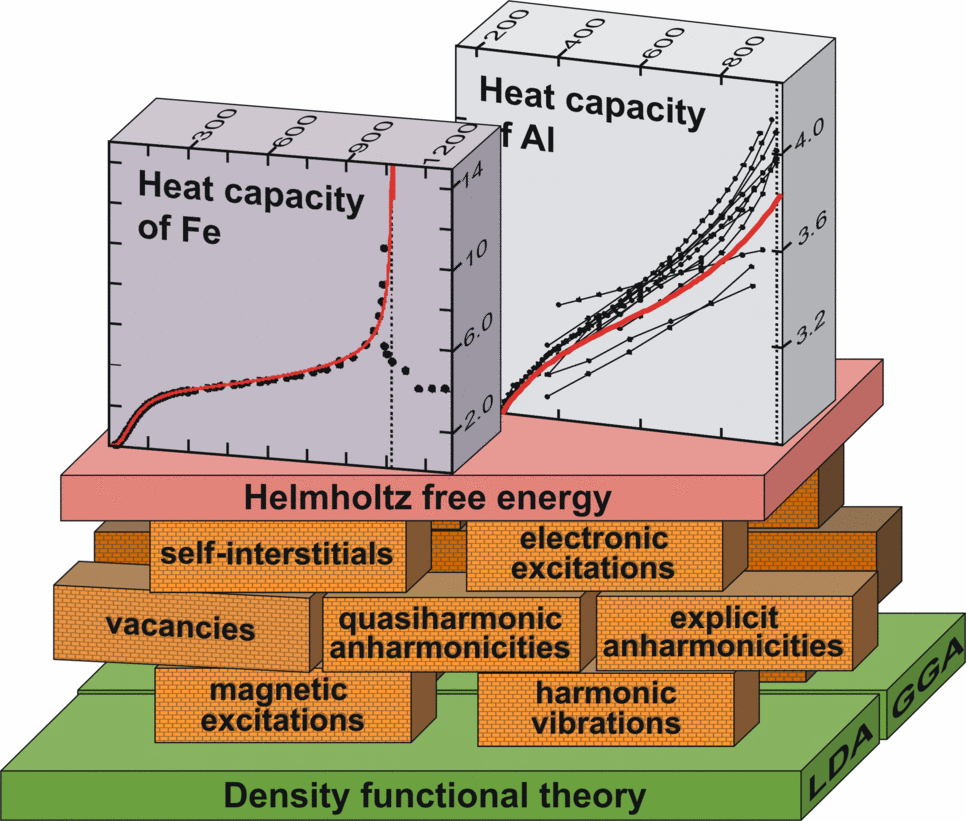
Computational Phase Studies
The research in this group is devoted to the physics of (meta)stable thermodynamic phases as well as transitions between them. Aiming at the design of sustainable materials, the major vision is an ab initio based prediction of thermodynamic bulk and defect phase diagrams as well as the implementation of corresponding workflows.
The research in the group is focused on the development and application of state-of-the-art materials scientific concepts and computational workflows required for an ab initio based prediction of thermodynamic bulk and defect phase diagrams. The main research fields in this context are:

- The continuous improvement of ab initio based methods to calculate the critical contributions to the free energy of metals, their application to industrially relevant materials, and the combination of the results with thermodynamic databases [1,2].
- The extension of ab initio thermodynamics to extended defects, such as grain boundaries, stacking faults and interfaces, in order to predict their stability.
- The energetics and kinetics of alloying elements and impurities such as hydrogen and their relevance for embrittlement phenomena, precipitation and ductility of materials.
- The development of generalized workflow solutions that make the simulations in the above-mentioned fields transparent and reproducible. [4]
All these aspects are strongly interlinked and are the basis for intensive collaborations with several groups within the MPI SusMat, the Materials Informatics division at BAM and beyond.
